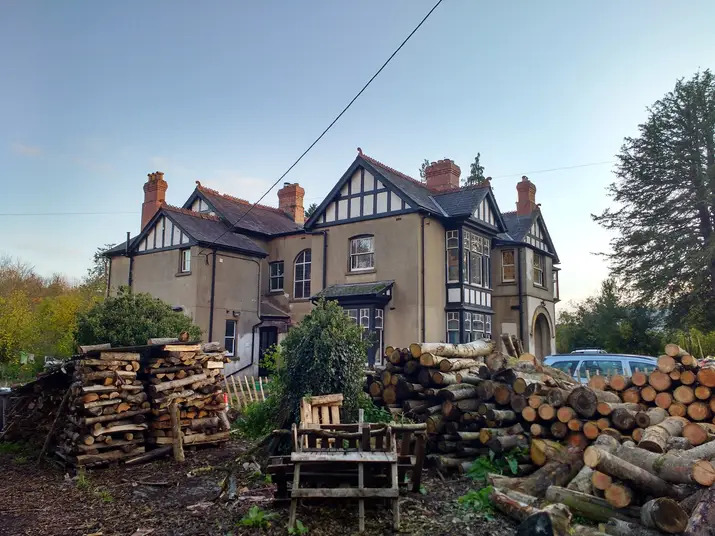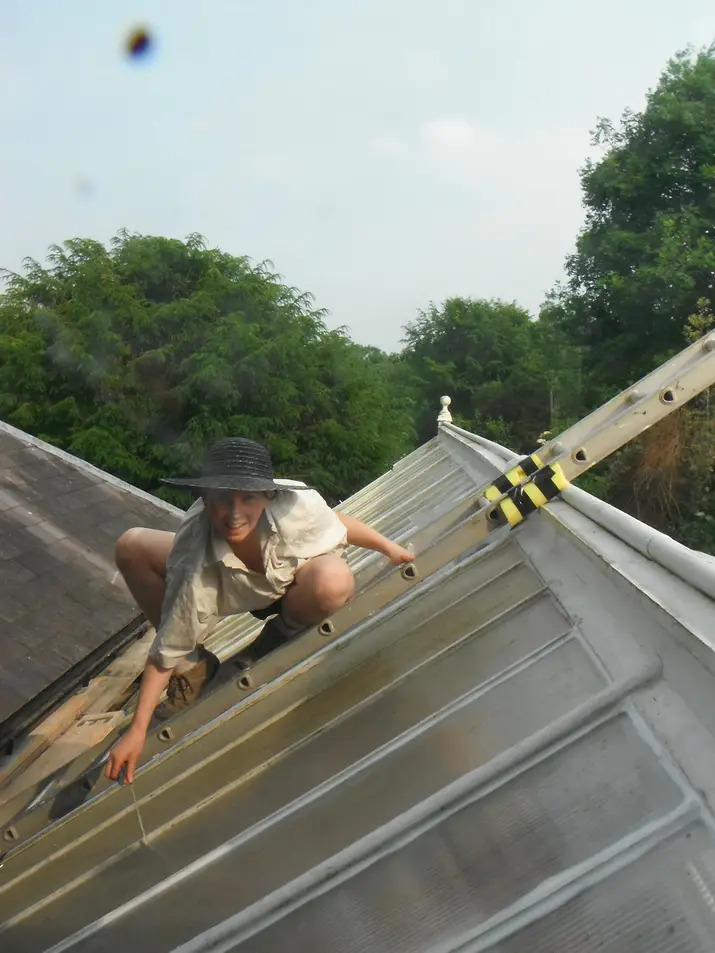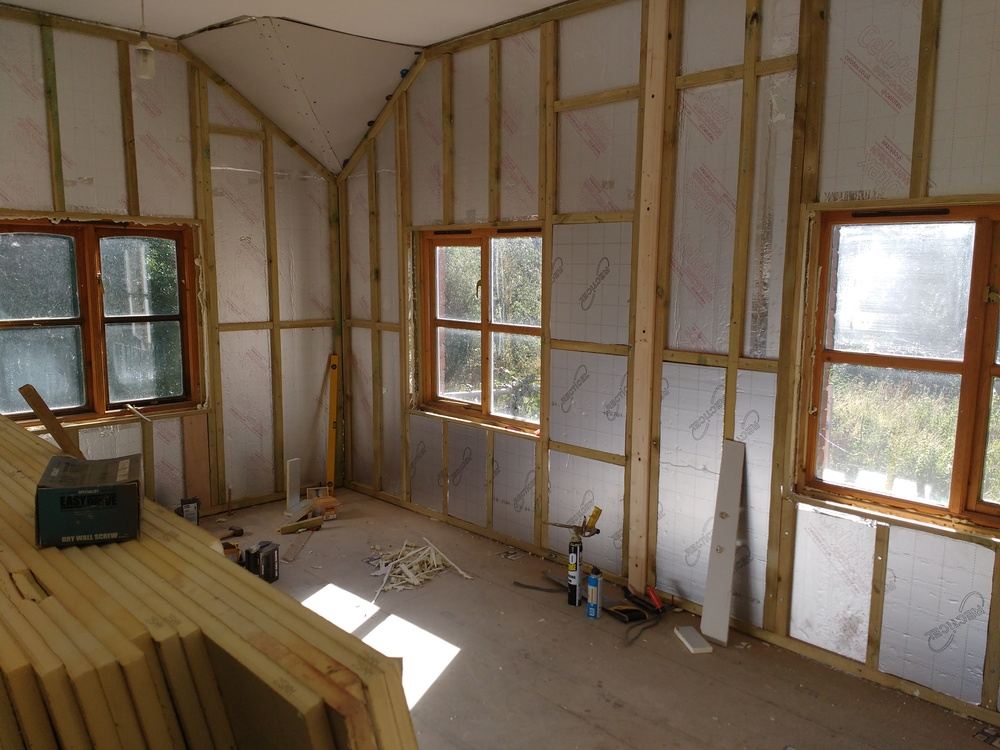 Every member has to pay rent and help manage the co-op. At monthly co-op management meetings, we agree on the work priorities and everyone commits to particular jobs. Over the year, the work commitment works out as 4 hours a week. Some members do more than that, because the renovation would just move too slowly otherwise, but this is voluntary, and everyone understands that.
Every member has to pay rent and help manage the co-op. At monthly co-op management meetings, we agree on the work priorities and everyone commits to particular jobs. Over the year, the work commitment works out as 4 hours a week. Some members do more than that, because the renovation would just move too slowly otherwise, but this is voluntary, and everyone understands that.
Once a month we have a co-op work weekend (usually the second weekend of each month), where everyone who is around and able to, puts in a few extra hours of work. We try to identify priority jobs for those weekends so everyone has something to do if they join in. Typically, we have a shared lunch on Saturday and sometimes also on Sunday.
 The jobs we share are really diverse, including the carpentry, simple electrics and plumbing you would expect from a property management company, but we also share sit down jobs like accounting, publicity, arranging events and ringing round for quotes. Any work that could go badly or expensively wrong is done by qualified contractors.
The jobs we share are really diverse, including the carpentry, simple electrics and plumbing you would expect from a property management company, but we also share sit down jobs like accounting, publicity, arranging events and ringing round for quotes. Any work that could go badly or expensively wrong is done by qualified contractors.
We do have whole-co-op meetings, most importantly the monthly 2-4 hour co-op management meetings, usually split over two evenings or done on a Saturday morning. The process of that is described in detail in “Our decision making process”.
Some of us also have a shorter, weekly meeting to co-ordinate the weekly workload, and there are working-group meetings for specialist tasks like finance, plumbing or woodland management. There are a few other special, voluntary meetings about things like budget-setting, recruitment and renovation, but those come in at a maximum of one per week and never more than 2 hours long.
 Attending co-op meetings is a legal membership requirement for living here, and their time doesn't count as part of the 4-hours a week co-op work-commitment. Neither does cooking, gardening or washing up! There are a lot of grey areas like harvesting and processing firewood, (Some of that is work-for-yourself, like doing your own chores, some is for the benefit of the whole co-op), but we try to be very clear about choice, and our demands of each other, so that the grey areas don't lead to resentment. There is a lot of policy to read, to understand how things have evolved and how they now function.
Attending co-op meetings is a legal membership requirement for living here, and their time doesn't count as part of the 4-hours a week co-op work-commitment. Neither does cooking, gardening or washing up! There are a lot of grey areas like harvesting and processing firewood, (Some of that is work-for-yourself, like doing your own chores, some is for the benefit of the whole co-op), but we try to be very clear about choice, and our demands of each other, so that the grey areas don't lead to resentment. There is a lot of policy to read, to understand how things have evolved and how they now function.
While we don’t expect every member to be at every co-op meeting, we do expect each other to read the minutes of meetings they have missed and to join in with the conversations and discussions that they care about. These discussions tend to be about such obvious and practical things, that they are rarely confined to “meeting time” and leak into meal-times and gossiping in the yard, but big decisions are only made in meetings, forewarned on agendas.